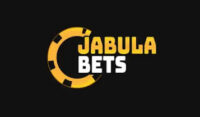The Proteas Tour to Pakistan 2025 has taken on fresh intrigue, with Quinton de Kock reversing his ODI retirement to join the white-ball squads, while regular Test captain Temba Bavuma is sidelined by a calf strain. Aiden Markram steps in to lead the Tests in Lahore and Rawalpindi in mid October, and South Africa will then pivot to a white-ball block that stretches into early November, now buoyed by a seasoned match winner back in the ranks.
What Bavuma’s absence means for the Tests
Bavuma has been ruled out of the Test tour because of a left grade two calf strain, a frustrating blow for a captain who has steered the red-ball group with calm purpose. In his place, Aiden Markram will captain, a role he knows well in white-ball cricket and one he now carries into a two-match examination in Pakistan.
The series runs from 12 to 24 October, staged in Lahore and Rawalpindi, venues that reward discipline and clarity of plans. South Africa’s selectors have doubled down on spin options, recalling Simon Harmer for the first time since March 2023 and naming Senuran Muthusamy and Prenelan Subrayen alongside him.
There is cautious optimism around Keshav Maharaj, who has been selected for the second Test only as he completes his rehabilitation from a left groin strain. That staggered inclusion signals calculated squad management, a nod to workload and fitness while keeping Maharaj in the frame for the decisive moments.
De Kock’s reversal and why it matters
Quinton de Kock retired from ODI cricket after the 2023 World Cup, and for a time it seemed that chapter had closed. He has now reversed that call, returning to the Proteas fold in both T20Is and ODIs for the Pakistan leg, a move that coach Shukri Conrad believes is a significant uplift for a group in transition.
Conrad, who took over the white-ball reins this year following Rob Walter’s sudden resignation, put it plainly.
“Quinton’s return to the white-ball space is a major boost for us. When we spoke last month about his future, it was clear that he still has a strong ambition to represent his country. Everyone knows the quality he brings to the side, and having him back can only benefit the team,” said Conrad.
De Kock has stayed sharp in T20 leagues, including the IPL and most recently the Caribbean Premier League that concluded earlier this month. While Conrad noted he may not be as destructive as in his early years, his presence can help fill the gap left by Heinrich Klaasen, who retired earlier this year, and it aligns with the coach’s goal of players putting the Proteas first.
Four captains and a clear plan
South Africa will operate with four captains across formats and opponents, a clear sign of role clarity and workload balance. Markram leads the Test side in Pakistan, David Miller captains the T20Is in Pakistan, and Matthew Breetzke stands in as ODI captain for the series that follows.
Before all of that, Donovan Ferreira will lead a one-off T20I against Namibia on 11 October. It is a useful staging post for combinations, and it offers de Kock his first international outing in over a year, a chance to sharpen timing and rhythm before the Pakistan tour begins.
Schedule and selection strategy
The white-ball leg in Pakistan features three T20Is from 28 October to 1 November and three ODIs from 4 to 8 November. The selectors have opted to rest the all-format players who are involved in the Tests for the limited-overs component, with two exceptions, Corbin Bosch and Dewald Brevis.
That call creates fresh opportunity for specialists while guarding against fatigue in a condensed tour. It also aligns with Conrad’s mandate to build depth, give emerging players time in the middle, and keep the group aligned to a larger vision that runs through to future World Cups.
New faces and fresh opportunity
There are maiden ODI call-ups for Donovan Ferreira and Sinethemba Qeshile, timely rewards for domestic consistency and promise. Rivaldo Moonsamy earns a berth in the T20I squad to face Namibia, a short window to press his claims before the group flies out to Pakistan.
Ferreira will captain against Namibia, a statement of trust and leadership potential. This is a smart way to test temperament, manage roles, and assess how a newer face responds when handed the keys, even if only for a one-match assignment that still carries importance.
The squads at a glance
Proteas Test squad against Pakistan
- Aiden Markram capt
- David Bedingham
- Corbin Bosch
- Dewald Brevis
- Tony de Zorzi
- Zubayr Hamza
- Simon Harmer
- Marco Jansen
- Keshav Maharaj second Test only
- Wiaan Mulder
- Senuran Muthusamy
- Kagiso Rabada
- Ryan Rickelton
- Tristan Stubbs
- Prenelan Subrayen
- Kyle Verreynne
Proteas T20 squad against Pakistan
- David Miller capt
- Corbin Bosch
- Dewald Brevis
- Nandre Burger
- Gerald Coetzee
- Quinton de Kock
- Donovan Ferreira
- Reeza Hendricks
- George Linde
- Kwena Maphaka
- Lungi Ngidi
- Nqaba Peter
- Lhuan-dré Pretorius
- Andile Simelane
- Lizaad Williams
Proteas ODI squad against Pakistan
- Matthew Breetzke capt
- Corbin Bosch
- Dewald Brevis
- Nandre Burger
- Gerald Coetzee
- Quinton de Kock
- Tony de Zorzi
- Donovan Ferreira
- Bjorn Fortuin
- George Linde
- Kwena Maphaka
- Lungi Ngidi
- Nqaba Peter
- Lhuan-dré Pretorius
- Sinethemba Qeshile
Proteas T20 squad against Namibia
- Donovan Ferreira capt
- Nandre Burger
- Gerald Coetzee
- Quinton de Kock
- Bjorn Fortuin
- Reeza Hendricks
- Rubin Hermann
- Kwena Maphaka
- Rivaldo Moonsamy
- Nqaba Peter
- Lhuan-dré Pretorius
- Andile Simelane
- Jason Smith
- Lizaad Williams
Three storylines that define the tour
- This is how it’s done, Bavuma’s injury reshapes leadership and balance for the Tests
- This is how it’s done squared, the return of de Kock recalibrates the white-ball batting mix
- This is how it’s done cubed, four captains underline a purposeful plan to spread responsibility.
How the balance of the Test side could shift
With Bavuma out, the top order will lean on Markram’s authority and method. The inclusion of multiple spinners suggests South Africa will be ready to adapt if surfaces offer grip in Lahore or Rawalpindi, with Harmer’s control and Muthusamy’s reliability key pillars.
Maharaj arriving for the second Test adds left-arm variety at just the right time. Whether South Africa pair him with Harmer or rotate as conditions dictate, the management of that spin group will be central to any push for a series result, especially if run rates tighten in the middle overs.
Why de Kock’s presence matters in the white-ball block
De Kock brings calm in the chaos of the powerplay and a read of situations honed across global leagues. Even if he plays with a slightly different tempo than earlier in his career, his experience against new ball bursts in subcontinental conditions is invaluable.
He last featured for South Africa in the 2024 T20 World Cup final in Barbados, and his return now comes with a clear commitment to the national cause. That aligns with Conrad’s insistence on prioritising South Africa, and it sets the tone for a group that will look to climb steadily through October and November.
The Namibia curtain-raiser and what it offers
The one-off T20I against Namibia on 11 October is more than a warm-up. It is a chance for Ferreira to stamp his leadership and for de Kock to sync with new and familiar partners before the higher-stakes fixtures in Pakistan.
For newcomers like Moonsamy, it is a window to absorb the tempo of international cricket. For bowlers like Maphaka and Ngidi, it is a useful tune-up to nail lengths and refine plans, especially with the Pakistan T20Is starting on 28 October, a quick pivot from red-ball focus to white-ball rhythm.
Selection clarity and the bigger picture
The decision to rest most all-format Test players from the white-ball leg, except Bosch and Brevis, speaks to a holistic plan. The schedule is compact, so protecting workloads while building bench strength is a sensible approach.
It also opens doors for Breetzke as an interim ODI leader and for Miller to steer a T20 group without several Test regulars. That mix of continuity and experimentation can reveal leaders in waiting and sharpen the edges of a squad that must compete across formats with consistency.
Why this tour matters now
Pakistan offers a searching examination, both in technique and temperament. Conditions can change quickly, momentum can swing in a session, and the margins are narrow, which is exactly the kind of environment that forges a durable identity.
For South Africa, this tour is a checkpoint. The Tests without Bavuma will test cohesion, and the white-ball block with de Kock back will test adaptability, with an eye on how different captains imprint their style on the same dressing room, a valuable data set for selectors.
Coach Conrad’s imprint
Conrad’s voice has been consistent, demanding higher standards while reinforcing clarity of roles. Welcoming de Kock back fits his stated aim of ensuring the best available players commit to South Africa first, a message that resonates in both selection and tone.
The alignment is visible, from the staggered inclusion of Maharaj to the strategic resting of Test all-format picks. In a crowded calendar, that kind of joined-up thinking is not a luxury, it is a necessity, and it sets the Proteas up to compete in Pakistan with purpose and poise.
Dates to circle
- This is how it’s done, Tests in Lahore and Rawalpindi from 12 to 24 October
- This is how it’s done squared, T20Is in Pakistan from 28 October to 1 November
- This is how it’s done cubed, ODIs in Pakistan from 4 to 8 November.
The bottom line
The Proteas arrive in Pakistan with a blend of disruption and renewal. Bavuma’s injury is undeniably a setback, but Markram’s leadership in the Tests and the return of de Kock to the white-ball squads provide balance and belief.
With four captains sharing responsibility and a thoughtful selection blueprint, South Africa have positioned themselves to learn quickly and punch hard. The next month will reveal how far that planning carries them, and whether the spark of a returning star can ignite a strong, sustained tour that lives up to the promise of a major boost.






